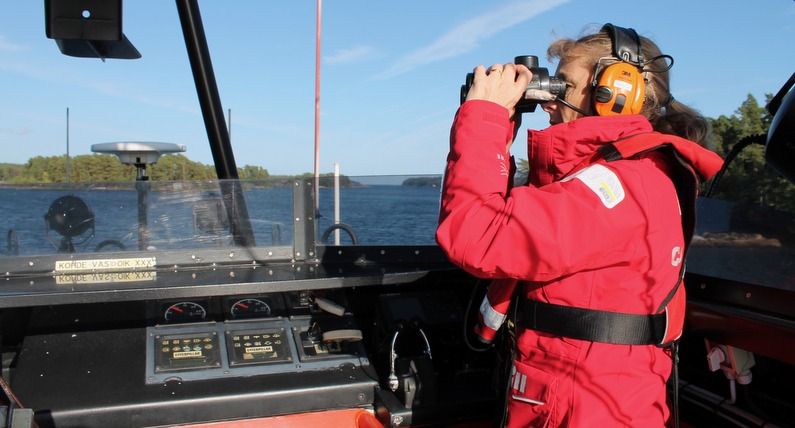
Women thriving in Coastguard
Supporting women from Coastguard Tautiaki Moana to excel here in New Zealand and alongside their peers in Finland.
The Women thriving in Coastguard initiative began in 2023 with discussions with women about their experiences in the organisation. “It became evident that we could do more to promote and support women in their SAR journey with Coastguard,” says Jacqui Arnold, Volunteer Manager for Coastguard Tautiaki Moana. The initiative aims to build maritime SAR skills and leadership capacity within the organisation. The goal is comparable rates of progression between all genders and ethnicities of volunteers. “By collaborating nationally and reaching out to SAR agencies outside of New Zealand, we aim to enable more women to develop and enhance their skills.”
Sarah Psaila is one of the women who is making the most of these opportunities. As well as being the staff member coordinating the Safe Boating programme for kids, Sarah has been a Coastguard Auckland volunteer for nearly 10 years. She realised that she needed a little more encouragement to take the next steps into leadership roles. “My husband joined after me, but I saw him progressing faster towards getting his skipper’s ticket,” says Sarah.
“The first all-women Skipper’s development course at Coastguard was just the thing I needed. It was fantastic to train alongside other women ‘in the same boat’ as me, who were all very capable, but just needed that little extra nudge. Since the course in July 2023, six of the eight women have qualified as skippers.”
The International Maritime Rescue Foundation (IMRF) has been running a #WomenInSAR initiative since 2019, to increase the representation of women in the maritime SAR sector. Sarah had been following the programme and applied to attend the second #WomenInSAR training, held in Bågaskär, Finland in August 2024. Sarah, plus Kate Stewart from Coastguard Sumner were selected to attend. With support from Coastguard, Sarah and Kate joined sixteen women representing 10 SAR organisations from 10 countries at the three day training event. The emphasis was on building connections through sharing knowledge and experiences. Facilitated discussions on topics such as leadership and decision making complemented on-water activities.
Delegates helped crew Finnish Lifeboat Institution rescue vessels ranging from a 26-metre launch, to a 11-metre jet boat to a 5-metre rigid hull inflatable. "We took turns as helm, navigator or skipper, operating unfamiliar vessels, in unfamiliar waters with an unfamiliar local crew," says Sarah. "During the informal parts of the event, we could open up and discuss difficult topics freely with our female peers."
Although most of the general procedures were the same, Sarah noticed a few key differences. "Finland has tens of thousands of islands peppered around its coastline. For multi-vessel searches, they divide search areas into smaller quadrants, operating individually in and around the islands, rather than in a multi-vessel search pattern like we use in New Zealand's more open waters. The waters are cold, so the standard kit is a drysuit and helmet with internal comms."
Delegates were also very interested in th 'Seaflux' onboard logging system which Coastguard Auckland has deployed across its fleet. Sarah shared that the software integrates all the incident sheets, fuel logs, vessel information and maritime checksheets with on-shore databases and comms networks.
The experience left Sarah with connections across the globe, with whom she continues to share and collaborate. "Everyone has been so open and supportive, and we're all benefiting from the shared knowledge and encouragement."
Enjoy this story?
Sign up to our Link Newsletter to receive stories like this plus NZSAR news and announcements direct to your inbox, every six weeks.
Follow NZSAR on LinkedIn for more SAR news, announcements and discussion.
This story was originally published in the December 2024 issue of Link magazine, which is produced by the NZSAR Secretariat for the wider search and rescue sector.
